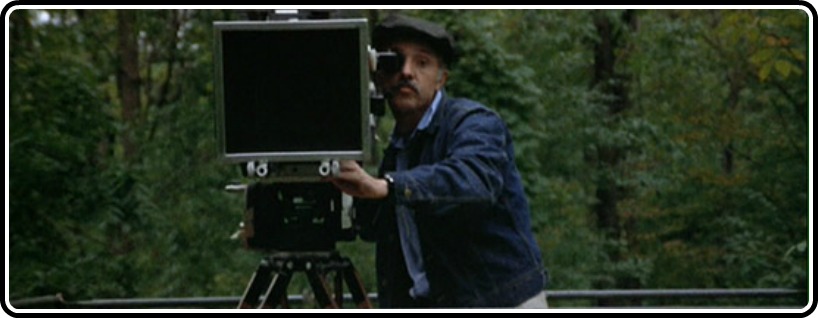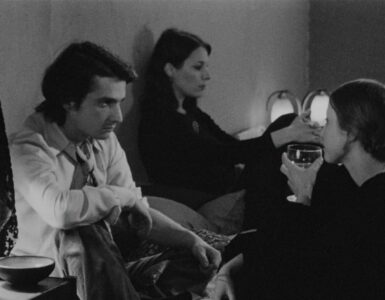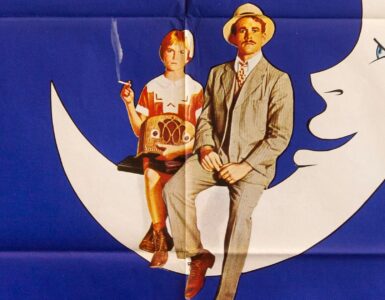While they aren’t ever credited alongside directors or actors, in many pictures, the cinematographer is just as important, if not more so. Various directors of photography have become household names ranging from the Gordon “The Prince Of Darkness” Willis to today’s most beloved cinematographers like Roger Deakins. However, very few ever make the jump, successfully, from cinematographer to actual filmmaker. Unless your name is Haskell Wexler, that is.
After nabbing the award for Best Cinematography for his work in Mike Nichols’ Who’s Afraid Of Virginia Woolf (which itself came after work on a film like Elia Kazan’s America, America), Wexler, a man who had been making personal documentaries for years at this point, got to step out with his own feature film and it’s a stunningly assured debut picture.
Entitled Medium Cool, the film is a newly entered member The Criterion Collection, and it is one of the most exciting additions in quite some time.
The film itself is an intriguing, and early, example of the now intensely popular idea of blending fiction and non-fiction filmmaking aesthetics. Think a surreal, Godardian-style meditation on art tossed alongside a vertie documentary look at social upheaval in the late ‘60s, and you have something remotely similar to the brazenly cold and thought-provoking gem of a drama.
Medium Cool introduces us to a TV news cameraman named John Cassellis (Robert Forster). From the film’s very first scene, we discover that not only will what follows be one of the most thrilling bits of social commentary from a generation just about to break, but also that our central character is as conflicted as they come. Even within Forster’s breathtaking performance here, the character is inherently filled with conflict over the position he holds. As a cameraman, what are the ethics with which he shoots? Even the film’s set design, which hints at both the Godardian influence in photographs of people like Jean-Paul Belmondo as well as this conflict with a giant version of Eddie Adams’ iconic photograph of an execution in Saigon, plays into the picture’s overall sense of melancholy.
Also his own photographer, this picture is one of the more gorgeous pieces of work to come out of late ‘60s American film. Again, with the very opening frames breathing life into a film that is both about man’s rights as cameraman and a generation that is on the edge, the film uses a neo-realist style found within much of the cinema of that era, and also takes into account films like Rossellini’s War pictures and everything in between. It takes this verite style into account when it comes to its screenplay. With various scenes left relatively open for improvised beats, the film has a free-wheeling nature that culminates in a final sequence that is as pertinent today as any you’ll see on your television news this evening. Toss in dream-like sequences like a playful, nude, romp reminiscent of a Nicholas Roeg film, and you have an entirely singular picture that is at parts extremely volatile (I’m thinking of, particularly, the film’s final shot, which itself could have dictionary sized books written about it) and then joyful, and ultimately downhearted.
That’s, again, this film’s greatest attribute. Originally given an X rating before garnering its current R status, the film itself has already been entered into the National Film Registry, the film has been rightly re-evaluated over the decades since its release, and is now considered more a historical document than even the great piece of cinema it truly is. A prototype for the modern day blurring of fiction and non-fiction cinema, Medium Cool is also something just shy of a masterpiece. Viscerally crafted with beautiful photography and some glorious verite filmmaking, Wexler’s debut drama features a career-best turn from Forster, who imbues his character with so much truth and vitality that it becomes something more than just a film. Concluding on a sequence that firmly tells the viewer that “the world is watching,” And thankfully, it’ll be able to watch this film once again, in the glory of a brand new Criterion Collection Blu-ray that is just about as great and as dense as they come.
As with any and every Criterion Collection Blu-ray, the transfer is the most important aspect. And here, thankfully, it is definitive. The Wexler-backed photography here is given brand new life by a director-approved 4k transfer with an uncompressed monaural soundtrack that pair together with inarguable perfection. The hues here are as vibrant as they have ever been, and ranging from the blue tinted opening shot to a roller derby sequence so colorful it rivals any French New Wave experiment, the film proves Wexler as not only a great filmmaker, but a great composer of the visual image.
Supplements are also varied here. Most notably are the two commentary tracks, both of which add a great deal of re-watchability to the picture. Wexler leads one along with editorial consultant Paul Golding and star Marianna Hill, giving a great deal of insight into the production of the picture. Personally, the more interesting of the two is led by historian Paul Cronin who adds a great deal of context to the film, its production and its ultimate cultural impact. Cronin’s documentary, Look Out Haskell, It’s Real!, is found here as well, as segments from the picture join an interview with Wexler, and another Cronin documentary on Harold Blankenship (Harold in the picture), all of which add a lot to an already deep release. Finally, there is a half hour long retrospective on the film, comparing its social movement to that of the Occupy protests that were held outside the 2012 NATO summit in Chicago, and while it hits on the (at least to me) less interesting of the two themes found within the main picture (that of social upheaval), it’s a resoundingly interesting short.
Overall, with a breathtaking transfer and a collection of supplements that further move the idea of a “film school in a box” that Criterion seems to put into the brains of its customers, this release of Haskell Wexler’s groundbreaking 1969 masterwork Medium Cool is as important a release as they come.






![Bergman Island (The Criterion Collection) [Blu-ray]](https://criterioncast.com/wp-content/uploads/2022/11/bergman-island-the-criterion-collection-blu-ray-400x496.jpg)
![This Is Not a Burial, It’s a Resurrection (The Criterion Collection) [Blu-ray]](https://criterioncast.com/wp-content/uploads/2022/11/this-is-not-a-burial-its-a-resurrection-the-criterion-collection-blu-ray-400x496.jpg)
![Lars von Trier's Europe Trilogy (The Criterion Collection) [The Element of Crime/Epidemic/Europa] [Blu-ray]](https://criterioncast.com/wp-content/uploads/2022/11/lars-von-triers-europe-trilogy-the-criterion-collection-the-element-of-400x496.jpg)
![Imitation of Life (The Criterion Collection) [Blu-ray]](https://criterioncast.com/wp-content/uploads/2022/11/imitation-of-life-the-criterion-collection-blu-ray-400x496.jpg)
![The Adventures of Baron Munchausen (The Criterion Collection) [4K UHD]](https://criterioncast.com/wp-content/uploads/2022/11/the-adventures-of-baron-munchausen-the-criterion-collection-4k-uhd-400x496.jpg)
![Cooley High [Criterion Collection] [Blu-ray] [1975]](https://criterioncast.com/wp-content/uploads/2022/11/cooley-high-criterion-collection-blu-ray-1975-400x496.jpg)